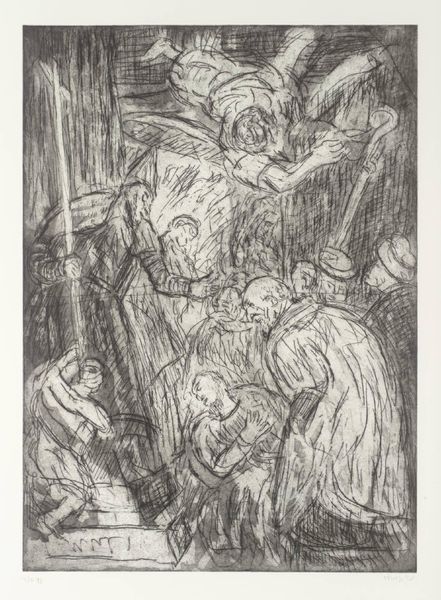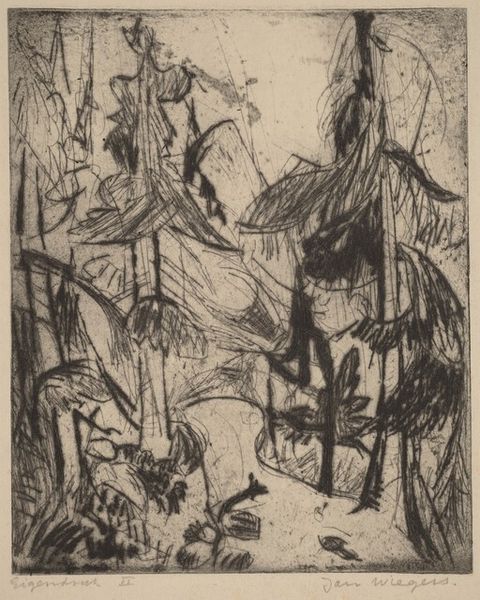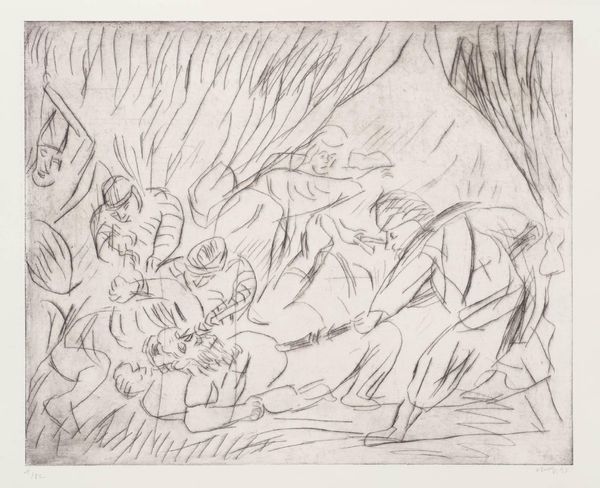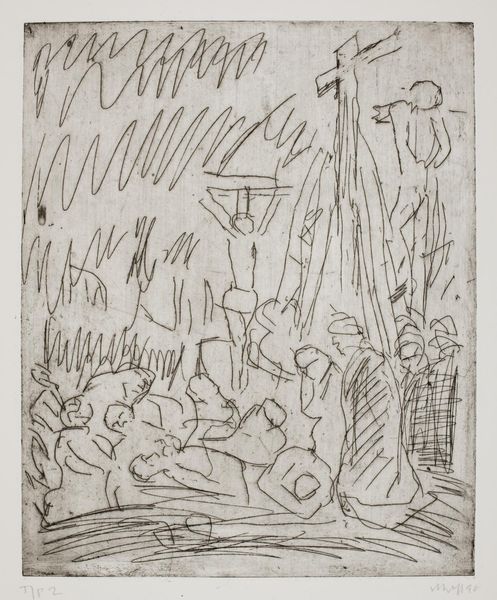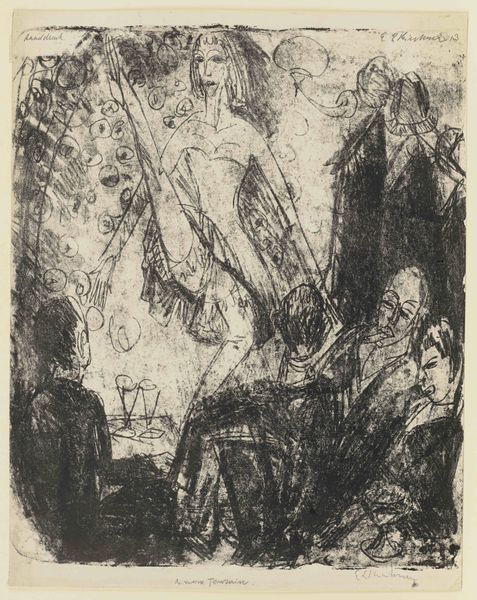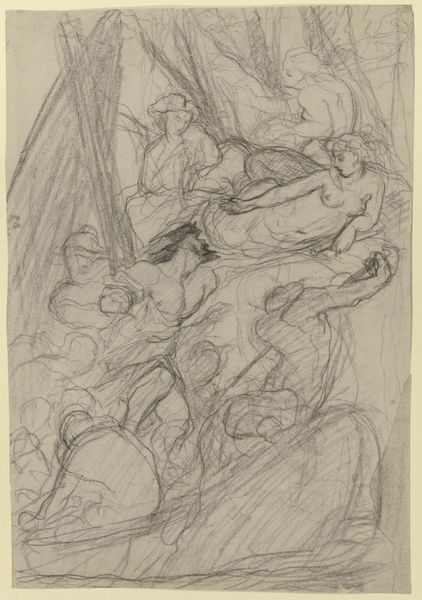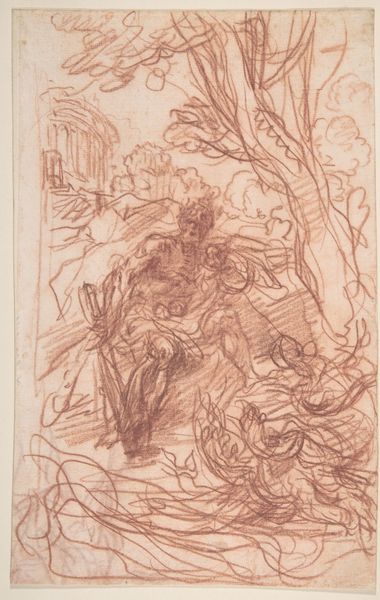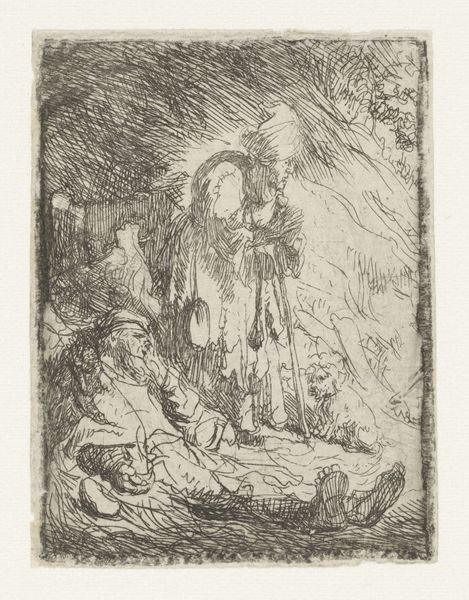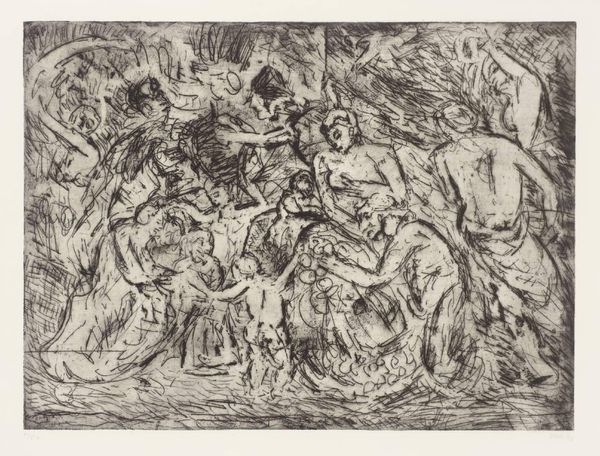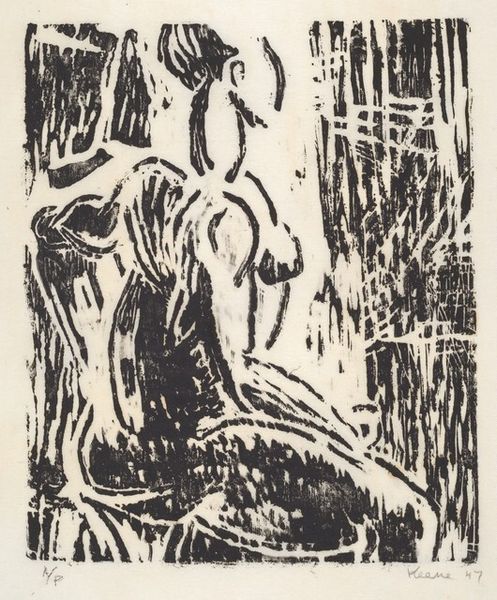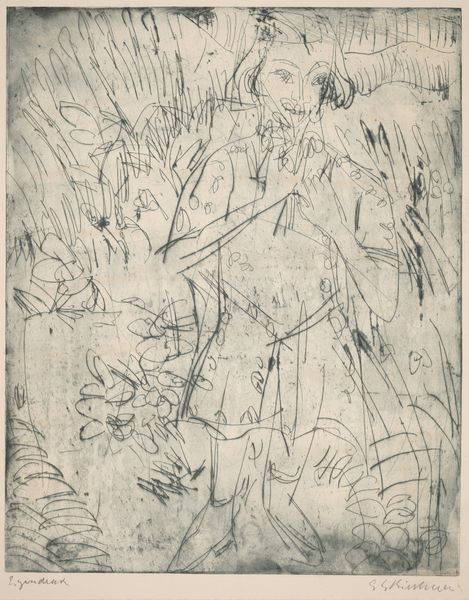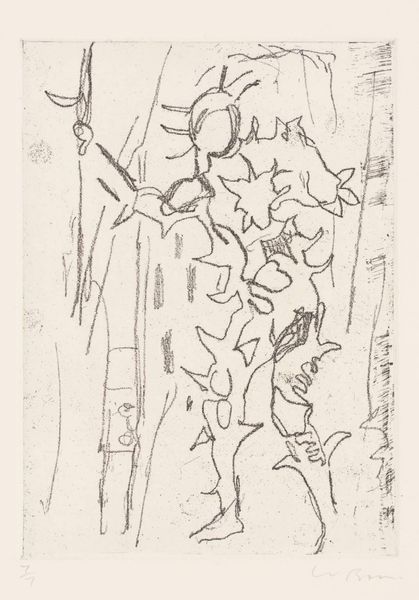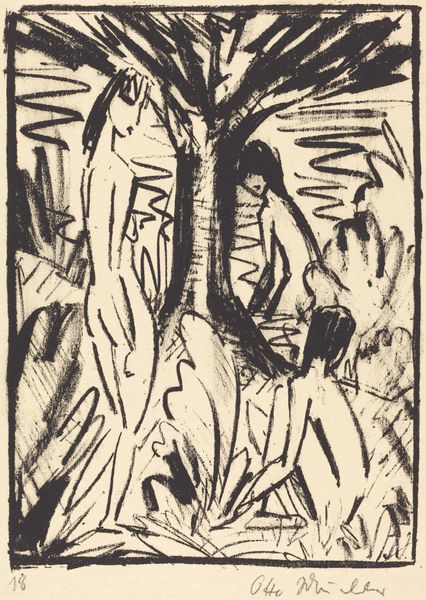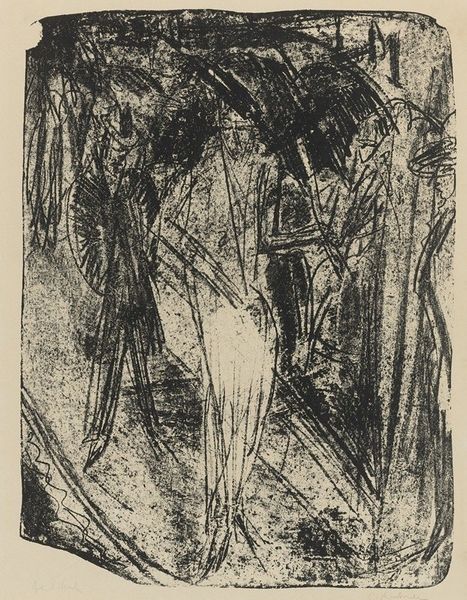
Copyright: © Leon Kossoff | CC-BY-NC-ND 4.0 DEED, Photo: Tate
Editor: This is Leon Kossoff's "The Consecration of Saint Nicholas (2)", an etching on paper. The frantic energy of the lines almost obscures the figures. What can you tell me about it? Curator: Look at the dense, repetitive lines. The labor involved in creating this print, the almost obsessive mark-making, speaks to a devotional act itself. How does this painstaking process relate to the idea of consecration, the making of something sacred through ritual and work? Editor: So, it's not just about the subject, but the physical act of creating the artwork that matters? Curator: Precisely. The material process mirrors the spiritual process depicted, blurring the boundaries between the mundane labor of art-making and the elevation of Saint Nicholas. It challenges traditional notions of sacred imagery. Editor: That's a really interesting way to look at it; the means becomes the message. Curator: Indeed. It's a reminder that even the most seemingly "spiritual" subjects are rooted in material realities and human endeavor.
Comments
tate 10 months ago
⋮
http://www.tate.org.uk/art/artworks/kossoff-the-consecration-of-saint-nicholas-2-p11714
Join the conversation
Join millions of artists and users on Artera today and experience the ultimate creative platform.
tate 10 months ago
⋮
This print is one of many etchings executed by Leon Kossoff in response to, and literally in the presence of, oil paintings by old masters; in this case The Consecration of Saint Nicholas, before 1562, by Paulo Veronese (c.1528-88), owned by the National Gallery, London. Tate owns two prints by Kossoff after this Poussin painting (Tate P11713-14). The artist’s ability to explore a number of separate responses while making drawings and prints from a single subject is illustrated in these etchings. This print was never published as an edition; Tate owns the only trial proof.
